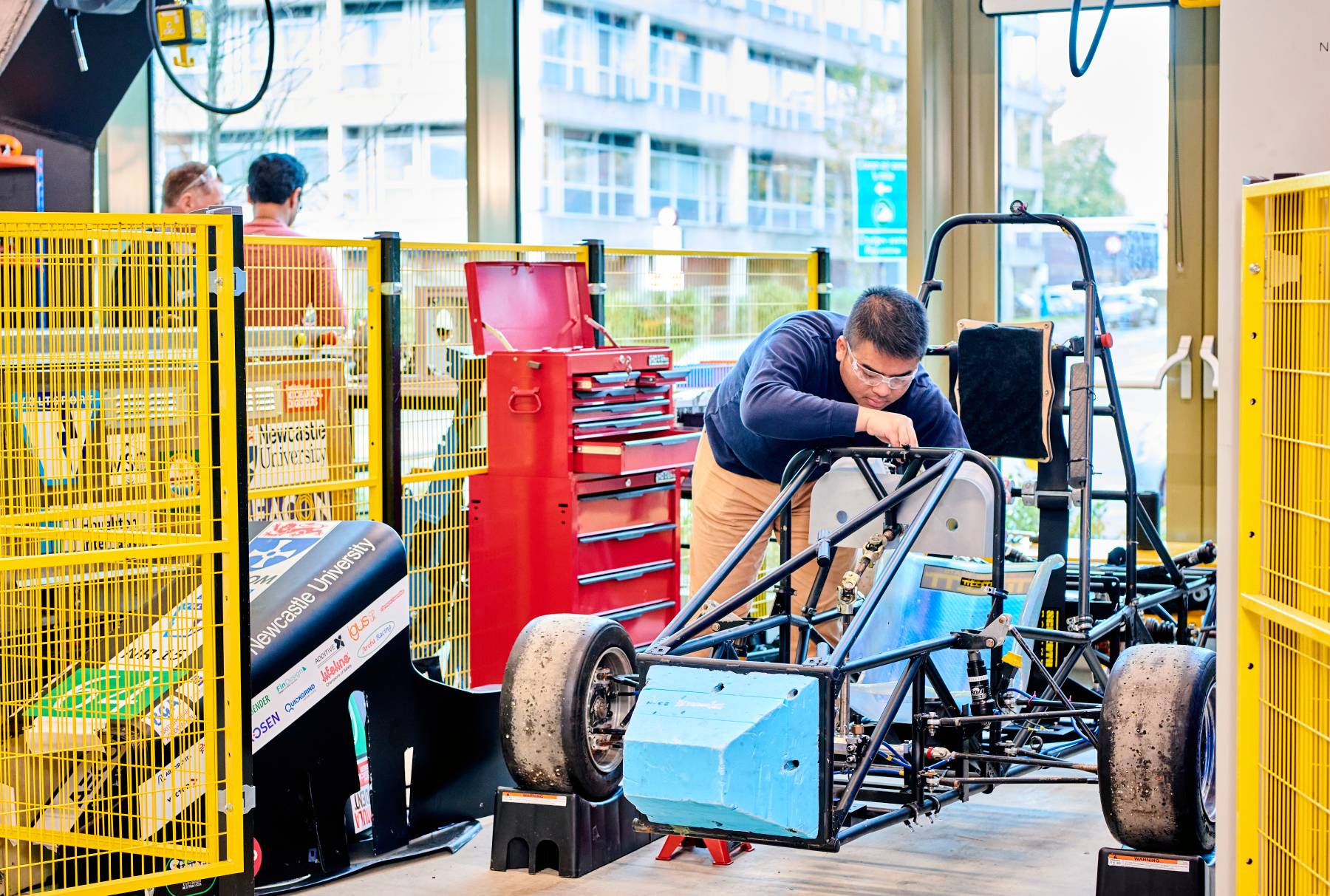CME8411: Recycling Technologies and Sustainable Materials
- Offered for Year: 2025/26
- Module Leader(s): Professor Mark Geoghegan
- Owning School: School of Engineering
- Teaching Location: Newcastle City Campus
Semesters
Your programme is made up of credits, the total differs on programme to programme.
| Semester 1 Credit Value: | 20 |
| ECTS Credits: | 10.0 |
Aims
This provides advanced knowledge and understanding of materials extraction, processing and waste management and recycling as a basis for Eco Assessment of products to facilitate environmental sustainability.
Outline Of Syllabus
- U Mineral resources, reserves classification and distribution of resources, extraction and processing of minerals.
- Circular economy and sustainable development. Critical raw materials and factors affecting waste management and recycling.
- Recycling technologies for metals, alloys, ceramics, polymers and composite materials.
- Eco-assessment techniques illustrated with case studies: Washing machines, electric cars, beverage bottles, Building components, and mobile phones, etc.
- Materials used for biodegradation and the mechanisms by which it occurs.
- Definitions of different kinds of corrosion and corrosion failure. The economic and health and safety implications of corrosive failure will be highlighted.
- Thermodynamics and electrochemical materials chemistry of corrosion.
- Using Pourbaix Diagrams to assess environments whereby materials can be made stable.
- Corrosion Protection: anodic and cathodic protection. Other means of enhancing the life of metals.
Learning Outcomes
Intended Knowledge Outcomes
On completing this module, students will be able to demonstrate knowledge and understanding of:
- The limited availability of raw materials and the importance of recycling in a circular economy
- Critical raw materials and factors affecting recycling
- The embedded energy and CO2 footprint associated with extraction, processing and recycling of materials
- Waste Management and its problems
- The basic dimensions of sustainable development
- The underpinning physical principles involved in corrosion as well as its importance (M1)
- The appropriate methods to extend the lifetime of materials to improve sustainability (M7)
- The applications and mechanisms involved in biodegradation (M1)
Intended Skill Outcomes
Students will be able to:
- Evaluate the eco-properties of materials.
- Make decisions on suitable technologies for recycling/management/degradation of solid waste.
- Make decisions about how to assess and maximize metal lifetime against corrosion.
- Use specialised software to carry out eco assessments (e.g.CES Edu Pack).
Teaching Methods
Teaching Activities
| Category | Activity | Number | Length | Student Hours | Comment |
|---|---|---|---|---|---|
| Scheduled Learning And Teaching Activities | Lecture | 15 | 2:00 | 30:00 | Lecture sessions for main syllabus |
| Structured Guided Learning | Academic skills activities | 4 | 2:00 | 8:00 | Edupac learning activities |
| Guided Independent Study | Assessment preparation and completion | 1 | 4:00 | 4:00 | Edupac assignment completion |
| Scheduled Learning And Teaching Activities | Small group teaching | 6 | 1:00 | 6:00 | Tutorials |
| Guided Independent Study | Assessment preparation and completion | 1 | 40:00 | 40:00 |
Revision for examination |
| Guided Independent Study | Assessment preparation and completion | 1 | 2:00 | 2:00 |
Written examination |
| Guided Independent Study | Assessment preparation and completion | 1 | 4:00 | 4:00 |
Formative computer assessment |
| Guided Independent Study | Assessment preparation and completion | 1 | 20:00 | 20:00 |
Revision for formative assessment |
| Guided Independent Study | Directed research and reading | 1 | 40:00 | 40:00 |
Directed reading and learning to solve practical engineering problems |
| Total | 200:00 |
Teaching Rationale And Relationship
Lectures convey the underlying engineering science and the approaches required to apply this to the discipline- specific problems identified.
Tutorials support the students' private study in reading around the lecture material and learning to solve the practical engineering problems posed by the Tutorial Questions using computer software.
Assessment Methods
The format of resits will be determined by the Board of Examiners.
Formative Assessment
| Component | Semester | When Set | Comment |
|---|---|---|---|
| Computer assessment 1 | 1 | M | Multiple choice test |
Other Assessment
| Component | Semester | When Set | Percentage | Comment |
|---|---|---|---|---|
| Prob solv exercises 1 | 2 | M | 20 | Edupac assignment centred around sustainable selection of materials |
Exams
| Description | Length (mins) | When set | Percentage | Comment |
|---|---|---|---|---|
| Written Examination 1 | 120 | M | 80 | End of block examination |
Assessment Rationale And Relationship
The formative computer-based assessment provides an appropriate way to assess both theoretical understanding and practical problem solving skills. It further provides a means to ensure engagement.
The written examination assesses the basic understanding and the ability to deploy the concepts learnt throughout the module in solving problems related to the sustainability of different kinds of materials under time constraint as required in industry
The assignment enables a more realistic engineering problem to be considered and assesses the required information acquisition and software use skills. It also develops the ability to apply the broad base of scientific principles which underpin engineering design, in conjunction with a deeper knowledge and understanding in a specific subject area.
Timetable
- Timetable Website: www.ncl.ac.uk/timetable/
